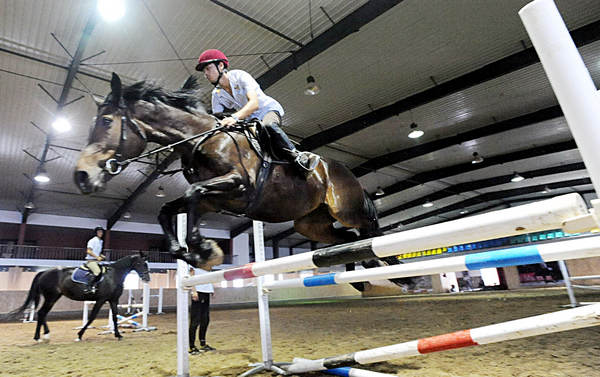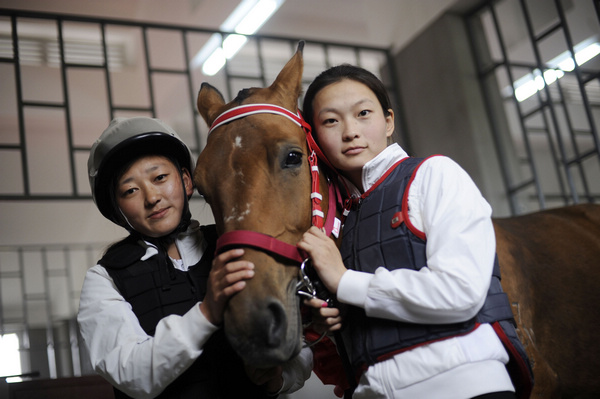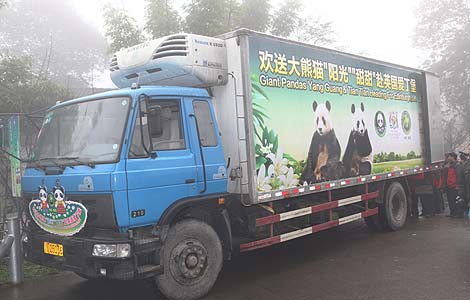Growing demand spurs greater horseplay
Updated: 2011-12-13 08:05
By Shi Jing and He Na (China Daily)
|
|||||||||
Contributions
From ancient times until about a half-century ago, horses played an important role in the daily lives of Chinese people. But as motor vehicles and other machines moved in, horses were generally moved aside. Yao, the agricultural professor, suspects that both ordinary people and the authorities are still thinking in old-time ways.
They "need to transform their concept of horse function first, from the roles of horses in agriculture, the military and transportation to new fields like racing, leisure sports and entertainment," he said.
"At present, more than 600,000 horses are working at tourist attractions," Yao said by way of example. A horse whose "job" is to be rented out for people to ride "can achieve an annual income around 4,000 to 15,000 yuan, which is considered the most effective and efficient way to increase local people's, especially herdsmen's, income."
A strong horse industry also can make a difference to a country. In Australia, for example, a study 10 years ago found that the industry contributed as much as $8 billion in value to the national economy. About half of that came from horse racing. In Hong Kong, taxes on horse racing bets account for more than 10 percent of the city's tax revenue.
"What I can see now," Han said, "is to learn from developed countries such as Germany, where the industry is clearly separated into two categories, breeding and racing. Unfortunately, a horse racing system, which has hundreds of years' history in other countries and regions, has not seen its embryo officially and legislatively set up in China nationwide."
China has experimented with horse racing, but does not allow wagering. Wu Gangfang, commissioner of public promotion for the Chinese Equestrian Association, told China Daily last summer that China has neither a legal framework for it nor systems to prevent cheating.
"Horse racing . . . would definitely bring high income to the horse industry, and it is the road that must be followed if a country wants to develop its horse industry," Yao said. "But the central government has imposed too many restrictions. I do hope the government speeds up the investigation pace and opens China's horse racing soon."
Meanwhile, the government is paying attention to other sports involving horses. China hosted six competitions of the International Federation for Equestrian Sports last year. Equestrian events also were held at the 16th Asian Games in Guangzhou.
"It is important to have the public involved and raise people's enthusiasm toward the horse industry," Yao said.
Write to the reporters at hena@chinadaily.com.cn and shijing@chinadaily.com.cn.
|
 |
|
A young equestrian from a pasture area of Inner Mongolia is training now for China's 12th National Games, which will be held in Shenyang, Liaoning province, in 2013. [Liu Shaozhuang / for China Daily] |












